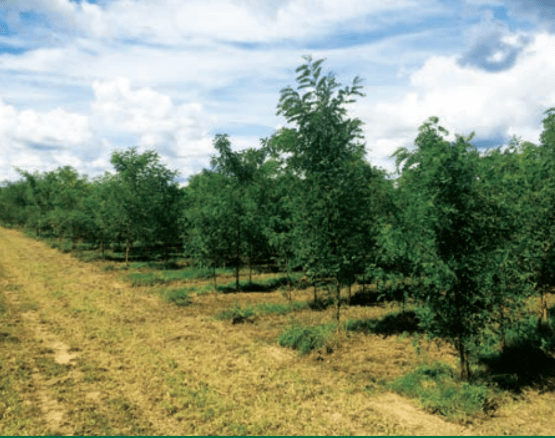Robinia also known as Robinia pseudoacacia or Black Locust is a hardwood tree with unique qualities that should spark the interest of the real asset investor. Interestingly, Robinia timber helped the USA win the 1812 War by strengthening the Navy ships.
Investing in hardwood Robinia trees.
Advantages of Robinia hardwood
Easy Propagation:
Robinia can be propagated from the roots of other Robinia seedlings or trees. It can also be grafted to make sure that any seedlings are genetically identical to other productive hardwood trees.
Fast Growth:
Black locust is an upright hardwood growing tree, on average it grows between 12 and 30 meters in length with a diameter of 30cm and 1.2meters, depending on age. Its wood is used as poles one of the characteristics that make it an interesting investment tree.
You might also be interested : How to invest in Aloe Vera
Timber:
Robinia timber has been referred to as the new teak.The wood is durable and has a closed grain which makes it ideal for fencing and of use within mine infrastructure. The uses of Robinia hardwood are versatile. It is very resistant to weather, water, abrasions and wear. This makes it ideal for use in garden furniture, shipbuilding, oil industry, stakes, fencing and playground equipment.
Given the amount of attention given to tropical deforestation especially hardwoods which take longer to grow, Robinia is gaining attention in Western Europe for both pole wood and lumber.
You might also be interested : How to Invest in Avocado trees.
Interaction with wildlife:
Robinia seeds are eaten by wild birds; woodpeckers also use Robinia as a nesting ground, In Eastern U.S.A Robinia is also used to produce honey, in Romania, the flowers are hand-picked to produce a jam.
Disadvantages of Robinia hardwood investment plantations
Pests and Risks:
It is only during the first five years of growth that Robina needs to be intensively managed. The main risks during this stage weeds and deer, the weeds are kept down through intensive management and a big fence keeps the deer out. In the USA the Locust Borer attacks the Black Locust wood, this could make the tree susceptible to wind breakage, this insect is not found in Europe. The leaf miner which eats Black Locust leaves, hinders growth but does not kill the tree, although these insects hardly represent a big danger.
Conclusion
The advantage of investing in hardwood trees is that these are a real asset. This gives a portfolio diversification both in terms of asset type and platforms on which those other assets are held. Owning stocks gives you ownership in companies, but these are secured by ones and zeros on computer hardware and software. When you own physical assets such as trees and land you have contracts which guarantee your property rights.
How to invest in Robinia trees?
You can invest in Robinia trees through Robinia Invest, a German-based firm which manages the whole life cycle of this investment. Investments start from 4,000 Euro for a plot size of 500m2. You can invest either by a leasehold or through a freehold. The lease involves a package with the ownership of trees but not of the land. Freehold includes the ownership of both the land and the trees; the advantage of freehold is that after 15 years when the trees are harvested another batch of trees can be replanted.









